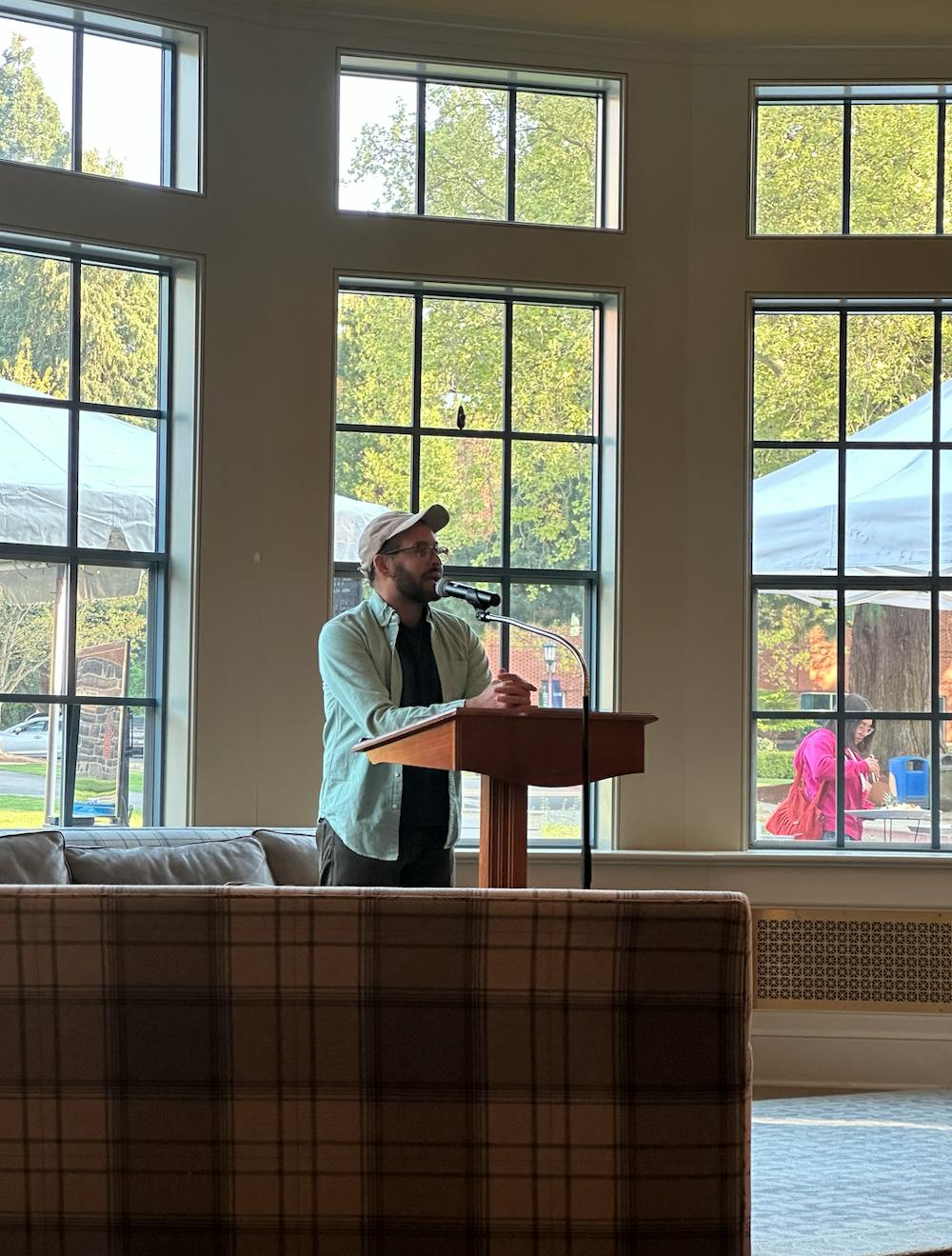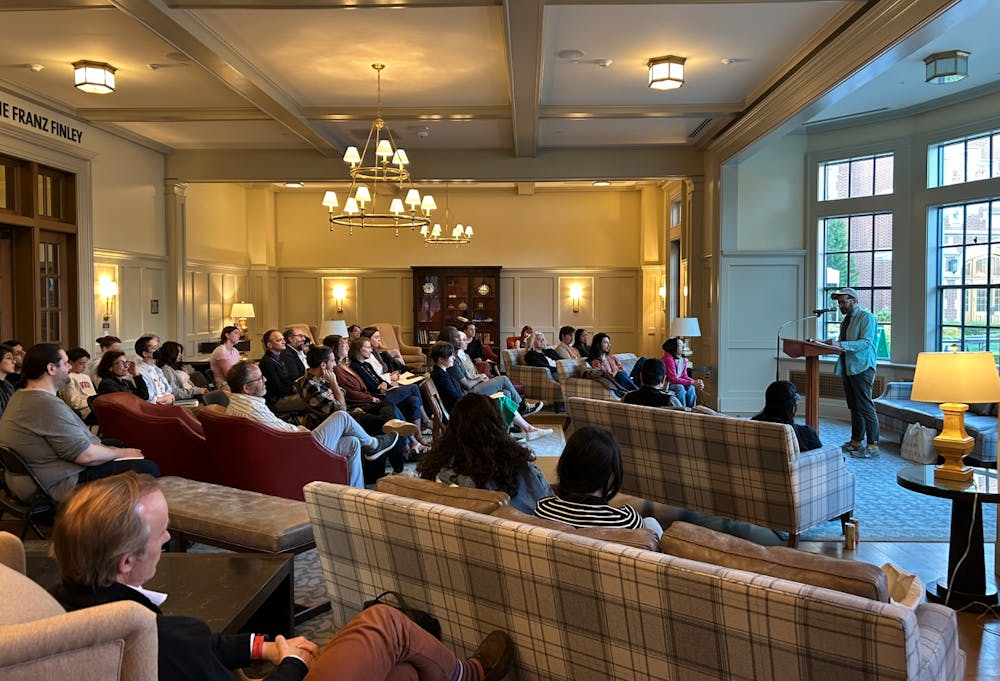During the COVID-19 quarantine, Portland-based poet Anis Mojgani virtually navigated his new position as Oregon’s poet laureate. Instead of traveling across the state to connect Oregonians to poetry, he inhabited an art studio six months shy of demolition.
But quarantine did not stop Mojgani from connecting with his community. After chatting with his friend through the studio’s window one day, they decided to expand on this “Sesame Street” window talk.
What started as a quick chat grew to hundreds of Portlanders gathered outside his window — all listening to him read his work. He called the readings “Poems at sunset out a window.”
On April 23, Mojgani spoke in the Dundon-Berchtold lounge about poetry as civic engagement for The Everyday Democracy Showcase. This three-part event was the culmination of the Public Research Fellows program (PRF), hosted by co-directors and associate professors Molly Hiro and Jen McDaneld. Mojgani’s talk concluded the showcase with a poetry reading and Q&A.
To supplement PRF’s conversation on civic humanities, Mojgani demonstrated how poetry is a vessel for engaging in civic discourse at the event.
“I think the world around us is just sort of like tripping over itself to pick up poems and show them to us,” Mojgani said. “I think about that with regards to this idea of civic engagement, because to me, [poetry] starts speaking to all of us of what is happening in the spaces that we live inside, and what do we want to notice about them, and what do we perhaps want them to be filled with? How do we desire them to be shared?”

To Mojgani, poetry is a connection to the world, whether that be through reading out of his studio window or at events like PRF’s.
In addition to connecting us to the world, poetry is also a connection to other individuals, according to Mojgani. He believes we each carry mini universes, and poetry is the language that translates those unreachable parts of us for others.
“We tend to look at poems as being these letters on a page, forming sentences and thoughts,” Mojgani said at the event. “And they are, but any poem that I write is ultimately an impression of something else that I've seen, an impression of something that I've experienced. It's simply a translation of something that doesn't have this type of language.”
He also compares poems to recognizable scents. Like a familiar smell, the more we recognize poetry around us, the more we recognize its universality.
Additionally, Mojgani believes it might not be our job to understand poetry, but it is our responsibility to “bear witness” to it.
And the crowd “beared witness” to Mojgani’s poetry during his reading. After finishing the last line of his first spoken-word poem, “Come Closer,” the room erupted in applause and murmurs of delight.
Through the crowd’s reaction to the reading, Mojgani’s work reveals the power poetry has to offer. For Hiro, an audience coming together to applaud poetry is the purpose of a civic humanities event — to foster connection between people.
“One of the things you could tell from being here is that it's captivating,” Hiro said. “[Poetry] creates community. He speaks, and everybody feels like they're somewhere special… You just feel like there’s a kind of electric connection among people.”
Mojgani also experiences this connection when listening to poetry. He describes the feeling as a “golden light” and characterizes it in his poem, “Today’s Love Is Brought To You By The Letter Jon Sands.”
“It’s almost like [Jon’s] a muppet with blonde hair and skin, and in hearing his poems, like the golden light that's like dancing inside of him enters me, and I suddenly feel like I have a power [in] me to pay my rent simply by delivering the most perfect high five to my landlord's palm,” Mojgani said.
Reem Alshaban, a first-year English and Spanish double major, is a longtime fan of Mojgani’s work. For her, hearing the poetry live was more invigorating than reading it in print.
“It is one thing to read [poetry] on paper, but a completely different thing to actually hear it in person,” Alshaban said. “It was so powerful and compelling… I just felt his poetry and his sort of passion for all the topics he talked about. It sort of went through me, and I just felt so inspired in that moment, in that seat this evening.”
Kaylee Monahan is a News Reporter for The Beacon. She can be reached at monahan26@up.edu.








